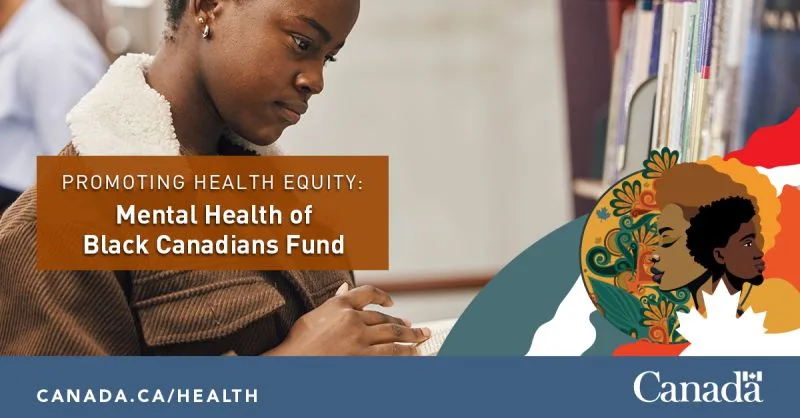Ottawa – This week is Black Mental Health Week, a time to amplify Black voices and bring awareness to the impact of anti-Black racism on the mental health of Black communities. Black people living in Canada continue to experience significant social and economic inequities that have negative impacts on their health. In particular, anti-Black racism and systemic discrimination are key drivers of health and social inequities. This year’s theme of Growth and Reflection, which ties into the UN’s International Decade for People of African Descent, provides a moment to reflect on these challenges and work towards building a more equitable society that leaves no one behind.
The Government of Canada is committed to improving access to culturally safe and informed mental health services. To do so, we are supporting initiatives and projects that are designed by Black communities for Black communities. Since 2018, we have invested in 23 projects through the Public Health Agency of Canada’s Promoting Health Equity: Mental Health of Black Canadians (MHBC) Fund. These projects support Black Canadians to develop culturally focused knowledge, capacity and programs to improve the mental health of Black people living in Canada. These evidence-based projects are led by, or developed in close collaboration with Black Canadian community groups, not-for-profit organizations, and researchers.
Through the MHBC Fund, we have also funded TAIBU Community Health Centre’s Black Wellness Network website and ACT Now! conference. The website provides centralized information and resources related to the mental health of Black communities in Canada. The conference is a national dialogue towards sustainable efforts in addressing Black mental health, well-being and systemic racism. The conference empowers participants to apply African-centered knowledge and ways of engagement in their work setting.
In September 2023, we announced the Distress Line Equity Fund, which provides access to $8 million in federal funding to address gaps in equity, diversity and inclusion within Canada’s distress line sector. Distress lines are a vital part of Canada’s public health approach to suicide prevention, and this program will help ensure distress lines and centres are able to respond to the needs and experience of everyone who calls, regardless of their background, culture or experience. Several organizations have already received funding to take on this important work, which includes improving service to the Black community and providing anti-racism training to responders, among other efforts.
Investing and working alongside Black community leaders and organizations is key to paving the way for better health outcomes for diverse Black communities in Canada. We can all work together to address all forms of anti-Black racism and improve the health, social and economic well-being of Black people in Canada.- Ya’ara Saks








